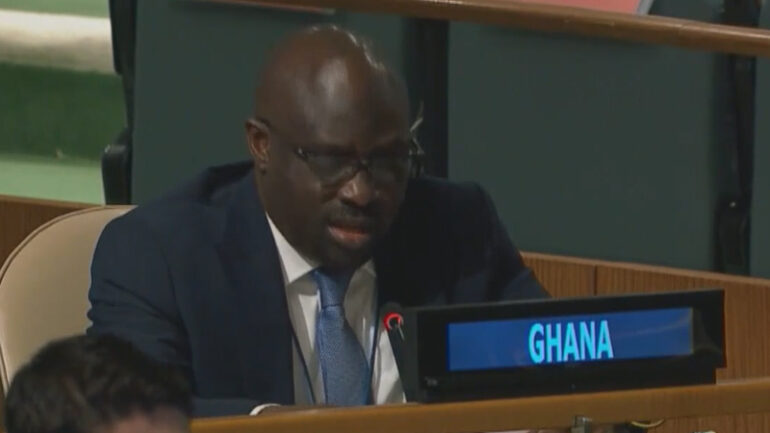Sixty-sixth session on Commission on the Status of Women (CSW66)

- Posted by admin
- Posted in Statement & Remarks
Your Excellency, Chairperson of the Commission,
Distinguished Delegates,
Ladies and Gentlemen,
It is an honour to address the sixty-sixth session of the Commission on the Status of Women. I am glad that this year’s session has taken a semblance of the vibrant nature that has often characterized the Commission’s previous sessions prior to the COVID-19 pandemic. Through Ghana’s Fourth Republic Constitution of 1992, which guarantees the fundamental human rights of all citizens, including women, children, the aged as well as Persons with Disabilities, the Ministry of Gender, Children and Social Protection, continues to be guided by in the national agenda for gender equality and the empowerment of women and girls.
In pursuance of the national agenda, Ghana has over the years adopted several initiatives such as the National Gender Policy to regulate and mainstream gender equality into all sectors of the
country, including the energy and environmental sectors, which are the focus of this year’s session.
Your Excellencies,
For Ghana, gender equality and climate change remain central to our development agenda and would continue to be prioritised in our National Medium-Term Development Policy Framework for 2022-2025, especially through the implementation of policy measures to reduce deforestation, ensure gender equality, and increase the productive use of clean water and good energy
Other national policies that would continue to be implemented to mainstream gender into climate change programmes, include:
- The National Climate Change Policy
- The National Strategy on Reducing Emission from
- Deforestation and Forest Degradation
- The National Forestry Development Master Plan
- The Food and Agricultural Sector Development Policy
- The Gender and Agricultural Development Strategy and
- The Ghana Plan of Action for Disaster Risk Reduction and Climate Change Adaptation
Excellencies,
In acknowledgement of the important roles of women and girls as primary managers of natural resources and powerful agents of change in formulating responses to climate change, Ghana
would continue to ensure that women and girls have equal access to knowledge, capacity-building, resources and technology which are prerequisites for addressing the impacts of climate change in our country but also in the sub-region. It is important to highlight that in our part of the world, climate change impacts men and women differently due to differences in
their traditional roles, societal expectations, and livelihoods. In rural communities, the impact of climate change on women is even more pronounced due to the large reliance on agriculture and
natural resources. It is therefore concerning that, while women face dire consequences related to climate change, their unequal participation in decision-making processes and labour markets
prevent them from fully contributing to climate-related planning, policy-making and implementation.
Accordingly, Ghana wishes to reiterate the importance of inclusion of women in the development and implementation of national climate and disaster risk reduction policies. We must also
continue to develop and implement policies, programmes and interventions to address inequalities that women and girls face in the context of climate change, environmental and disaster risk
reduction. Research has proven that the harmful effects of climate change leads to the erosion of women’s and girl’s physical and emotional safety and security, which in turn increases the burden of their unpaid care work and limit their access to natural resources, clean water, food, transport, energy, sanitation, housing among others.
To effectively and efficiently manage this, Ghana is collaborating with Development Partners, Ministries, Departments, Agencies, District Assemblies and Civil Society Organizations with the institutionalization of quarterly review sessions to assess the achievement of set targets of both government and CSOs under the Gender Equality Sector Team.
The effort to achieve gender equality would not succeed in isolation. There is the need to collaborate through sharing ideas and best practices towards a more sustainable world.
I thank you for your attention.
